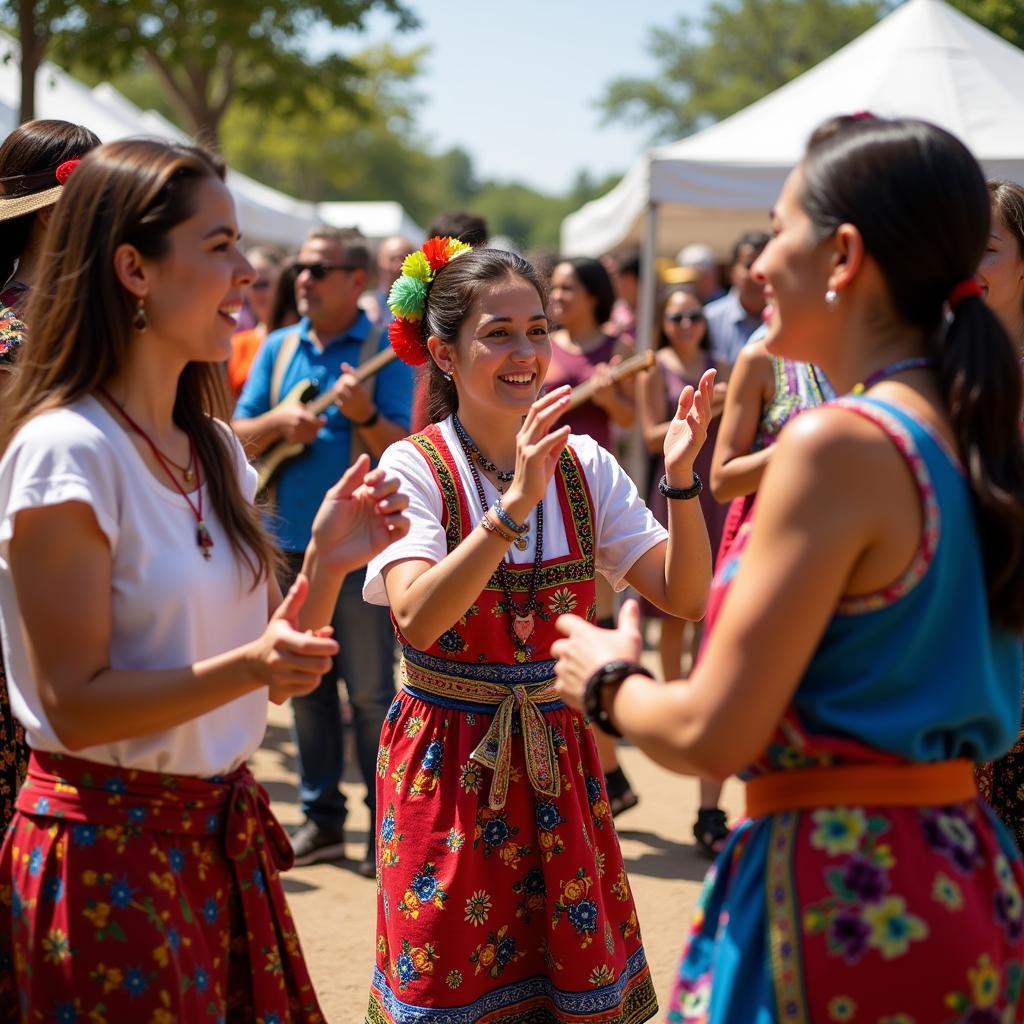Oral tradition, the passing down of stories, songs, and knowledge through spoken word, plays a vital role in shaping a society’s identity. What is the purpose of a society’s oral tradition? It acts as a living library, preserving history, customs, and beliefs across generations in the absence of written records. This practice fosters a sense of community, strengthens cultural bonds, and transmits essential values that define who we are and where we come from.
Preserving History and Cultural Heritage Through Storytelling
One of the primary purposes of oral tradition is to act as a repository of a society’s history. Before the widespread adoption of writing, oral storytelling served as the primary method of recording and transmitting historical events, genealogies, and cultural practices. Through epic poems, myths, and legends, communities could preserve their collective memory and ensure that their history wasn’t lost to time. This verbal transmission ensures cultural continuity, connecting past, present, and future generations. These narratives often embed important lessons and moral guidance, shaping societal norms and behaviors.
The Role of Oral Tradition in Education and Socialization
Oral tradition plays a crucial role in education and socialization within a community. Through storytelling, proverbs, and songs, younger generations learn about their culture’s values, beliefs, and customs. These narratives often contain important life lessons, moral guidance, and practical knowledge related to survival, social interaction, and spiritual understanding. This form of education fosters a sense of belonging and strengthens social cohesion. For example, the Springfield Choral Society embodies this by preserving and sharing musical traditions orally within their community.
How Oral Tradition Fosters Community and Identity
The shared experience of listening to and participating in oral traditions fosters a strong sense of community and shared identity. Gathering to hear stories, sing songs, or participate in rituals strengthens social bonds and reinforces cultural values. These shared experiences create a collective consciousness and a sense of belonging within the community. This is especially evident in societies where oral tradition remains a central aspect of cultural life.
 Oral Tradition Fostering Community
Oral Tradition Fostering Community
Oral Tradition in the Modern World: Adapting and Evolving
Even in today’s digital age, oral tradition continues to play a significant role in many societies. While written and digital forms of communication have become prevalent, oral traditions persist and adapt. They may take on new forms, incorporating elements of modern technology, but the core purpose remains: to transmit knowledge, preserve culture, and strengthen community bonds. This adaptation is vital for ensuring that these traditions remain relevant and continue to thrive in a changing world. Think about the Utah Choral Arts Society, which blends traditional choral music with contemporary performances, bridging the gap between generations.
Why Understanding Oral Tradition Matters
Understanding the purpose of a society’s oral tradition is crucial for appreciating the richness and complexity of human culture. It allows us to connect with the past, understand the present, and shape a more inclusive and interconnected future. By valuing and preserving oral traditions, we safeguard the diverse tapestry of human experience. Furthermore, understanding the nuances of oral tradition can help us interpret historical narratives, understand cultural practices, and appreciate the power of storytelling in shaping societal values and beliefs.
Conclusion: The Enduring Power of the Spoken Word
What is the purpose of a society’s oral tradition? It is to connect us to our past, guide us in the present, and inspire us for the future. It’s a testament to the enduring power of the spoken word, a vital thread that weaves together the fabric of human experience, reminding us of the shared humanity that binds us all. Even in the digital age, oral traditions continue to hold immense cultural and social significance, reminding us of the power of storytelling and shared experience in fostering peace and understanding.
FAQ
- What are some examples of oral traditions?
- How does oral tradition differ from written history?
- What are the challenges of preserving oral traditions?
- How can we support the continuation of oral traditions?
- What is the impact of technology on oral traditions?
- How can oral traditions contribute to peacebuilding and reconciliation?
- What are some resources for learning more about oral traditions from different cultures?
For support, please contact us at Phone Number: 02043854663, Email: [email protected] Or visit our address: Khu 34, Bac Giang, 260000, Vietnam. We have a 24/7 customer service team.